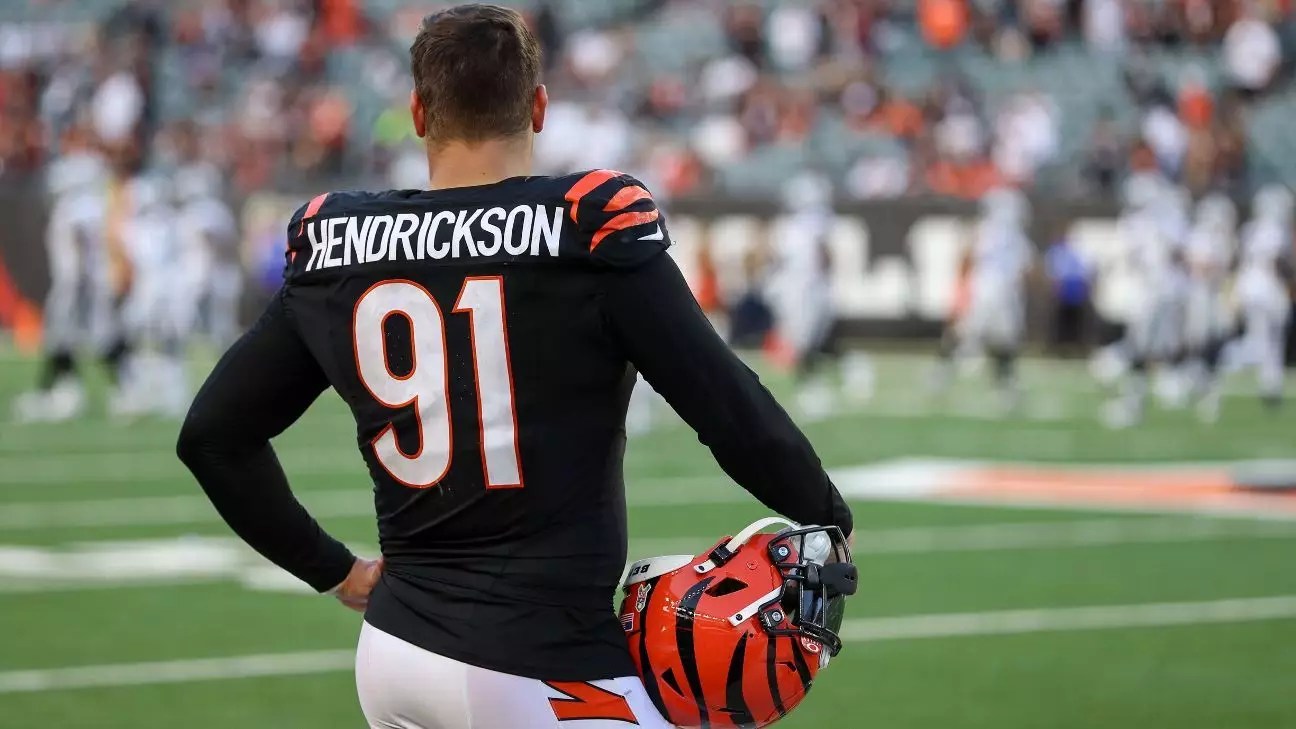In the high-stakes world of professional football, where players often chase the spotlight and lucrative deals, Trey Hendrickson’s refusal to compromise his principles stands out as a compelling narrative. Rather than simply accepting what is offered, the Cincinnati Bengals’ defensive veteran emphasizes a fundamental need for security—an aspect he feels the current contract negotiations have failed to fulfill. His stance underscores a broader truth: athletes are increasingly asserting control over their careers in an environment notorious for exploitative tendencies. Hendrickson’s decision to hold out reflects a shift away from blind loyalty toward players, demanding respect for their contributions and future security rather than just immediate monetary gain.
The Negotiation Standoff and Its Ramifications
At the heart of Hendrickson’s dispute with Cincinnati lies a fundamental disagreement over guaranteed money. While both parties agree on his value—highlighted by his recent Pro Bowl selection and stellar sack production—the Bengals’ stance on non-guaranteed salaries after the first year remains a significant obstacle. This stance not only stifles Hendrickson’s desire for financial security but also raises questions about the team’s valuation of veteran players. His stance highlights a broader issue in the NFL: the disparity between the value players bring on the field and the contractual protections they receive. The lack of guaranteed money creates a volatile environment where athletes are vulnerable despite their on-field achievements, and Hendrickson’s position advocates for a shift toward more equitable contract structures.
Refusal to Be Overlooked or Undermined
Hendrickson’s choice to forego playing—despite being in the form of his life—is a statement of resilience and conviction. Some may interpret his stance as stubbornness, but it is far more a calculated stand for respect and acknowledgment. By opting out of the season, Hendrickson emphasizes that his worth is not solely measured by sacks or accolades but by the security that sustains his family and future. His reluctance to engage in practice without a secure deal speaks volumes about the value players place on stability rather than just fleeting fame. It also serves as a wake-up call to NFL teams, nudging them toward a more player-centric approach that recognizes the value of experienced veterans.
Implications for Future Contract Negotiations
This showdown points to a potential shift in how NFL contracts are negotiated moving forward. Players are growing increasingly vocal about their rights, catalyzing conversations around guaranteed money and long-term security. Hendrickson’s stance may inspire other established stars to demand better terms, ultimately leading to more balanced negotiations in the league. Such collective action could accelerate progress toward contracts that prioritize stability, potentially reshaping the relationship between players and teams. Meanwhile, the Bengals’ ongoing resistance highlights the resistance to change within franchise management—yet the tide appears to be turning as players assert their power more confidently than ever before.
A Personal Battle with Broader League Significance
Ultimately, Hendrickson’s refusal to play this season transcends individual ambition—it symbolizes a broader struggle for fairness in a sport driven by high revenues yet often lacking in equitable treatment for its star performers. His unwavering stance reflects a desire not just for financial security but for dignity and respect in a league that often exploits its players’ talents without sufficiently protecting its investments. As Hendrickson pushes for his soul to be recognized, he ignites a crucial conversation about morality and fairness in the NFL, encouraging players to stand firm and demand what they rightfully deserve in the most competitive sports league in the world.


Leave a Reply